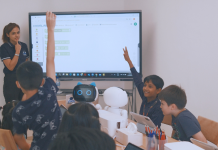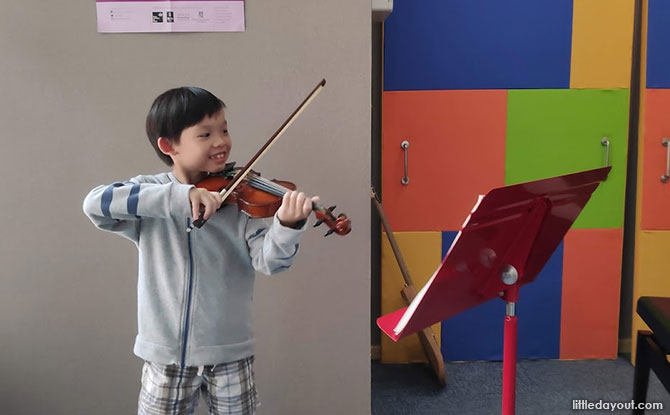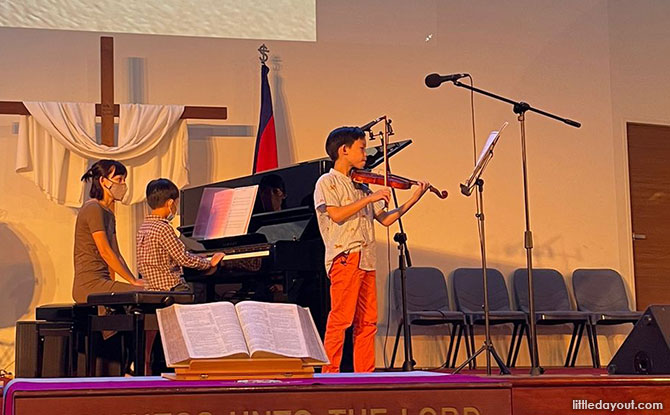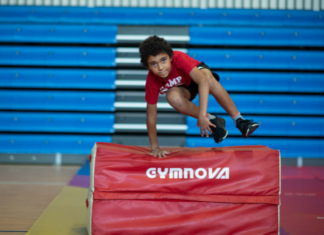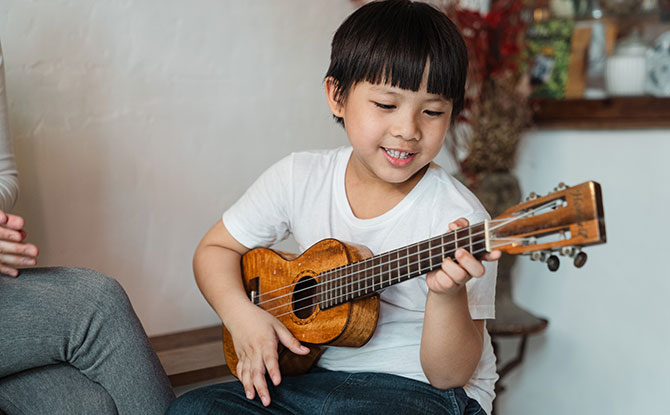
Have you wondered how Mozart’s parents got him to practise the piano?
Perhaps he was a prodigy and practising music came naturally, but we all know the importance of music practise! Practise makes perfect!
But how can we motivate our children to practise music?
We have experienced and heard about how painful music practice sessions are (to both parent and child). Think tantrums, tears, frustration, banging of piano keys, stomping on pedals and the likes – perhaps we can first rethink music practise.
DINO-TASTIC EXHIBITION: Meet a 40m Long Dino Face-to-Face
Enjoy $600 Off: 1:1 Lessons Tailored to Your Child's Needs
REGISTER EARLY AND SAVE UP TO $400: English Classes for N1 to Secondary
Why Music Practise is Important aka Motivating Your Child to Practise Music
Music practise is consistent and repetitive playing to be more competence. This is a self-discipline that can make one improve and experience success. Yes, that means even the music prodigies have to practise a lot to get better.
Even Mozart had to practise over 10, 000 hours or 13 years in obscurity before gaining in fame!
Our goal is not to replicate this, but to encourage our children to maximise his or her potential in music learning as he or she practises music.
Here are 7 tips to motivate your child to practise music.
1. Help your child to include it in a daily routine
In daily schedules, include music practice time as one of the components. Whether it is for 15 minutes or a few hours per day, practise is essential especially when goals are set and met. Mutually agree on a timing and stick to it so it becomes habitual.
Help your child to set the small and big goals each practice session to make the best of it.
2. Practising – the long and short
Practising your music instrument encourages muscle memory. It is vital to practise both the small and larger components of a piece. Smaller components can be one to three bars – those which are more challenging and areas prone to mistakes. Larger components will be the entire piece or half of it according to a certain goal – following the metronome for instance or playing with dynamics.
3. Reward your child in diligence and effort
You should also reward your child especially younger ones who may find it difficult to focus for a long time. Some parents use reward charts, point systems to incentivise children to practise. While that is good, the carrot method should not be over-used otherwise there is an unhealthy reliance on it.
Praise your child for focusing, improving and putting in effort especially during challenging moments.
4. Inspire with music pieces
Learning music should not just be about acquiring certificates as one should learn to appreciate music – its history, genres, composers, instruments and so on. Expose your child to music history, performances by professional ones, YouTube videos and plenty of music. This raises interest and inspires your child to desire to play like the professional musicians. You can also remind them that mastering an instruments takes time and lots of practise!
5. Let your child pick pieces to play
Rather than play exam pieces only, let your child choose pieces he or she loves! Favourite cartoon and movie soundtracks for example can be a wonderful way to spur your child to practise on his or her own. You can download scores online or use Simply Piano which has a treasury of scores in varying levels.
6. Do a duet
Don’t just tell your child to practise, practise together with him or her. Or better yet, get siblings learning music to play together. It’s different playing an instrument together with others. The camaraderie and teamwork when making music together is incredible!
7. Participate in a performance or recital
If there is an opportunity to play for an audience, seize it! This helps push the child to want to practise and be better since the external motivation is present. Participate in a performance or recital, play for loved ones – this always helps to motivate kids to practise.
Learning Music takes Time and Hard Work
Parents play a vital role in helping your children with their learning – regardless of subject. Music is one of the many skills you hope to cultivate in your child. It is a privilege to be able to learn an instrument, and it comes with plenty of hard work. This is also an opportunity to practise grit and resilience which are life skills important in other areas of life. We hope the tips help parents to guide their children patiently and lovingly in the music-learning marathon.


